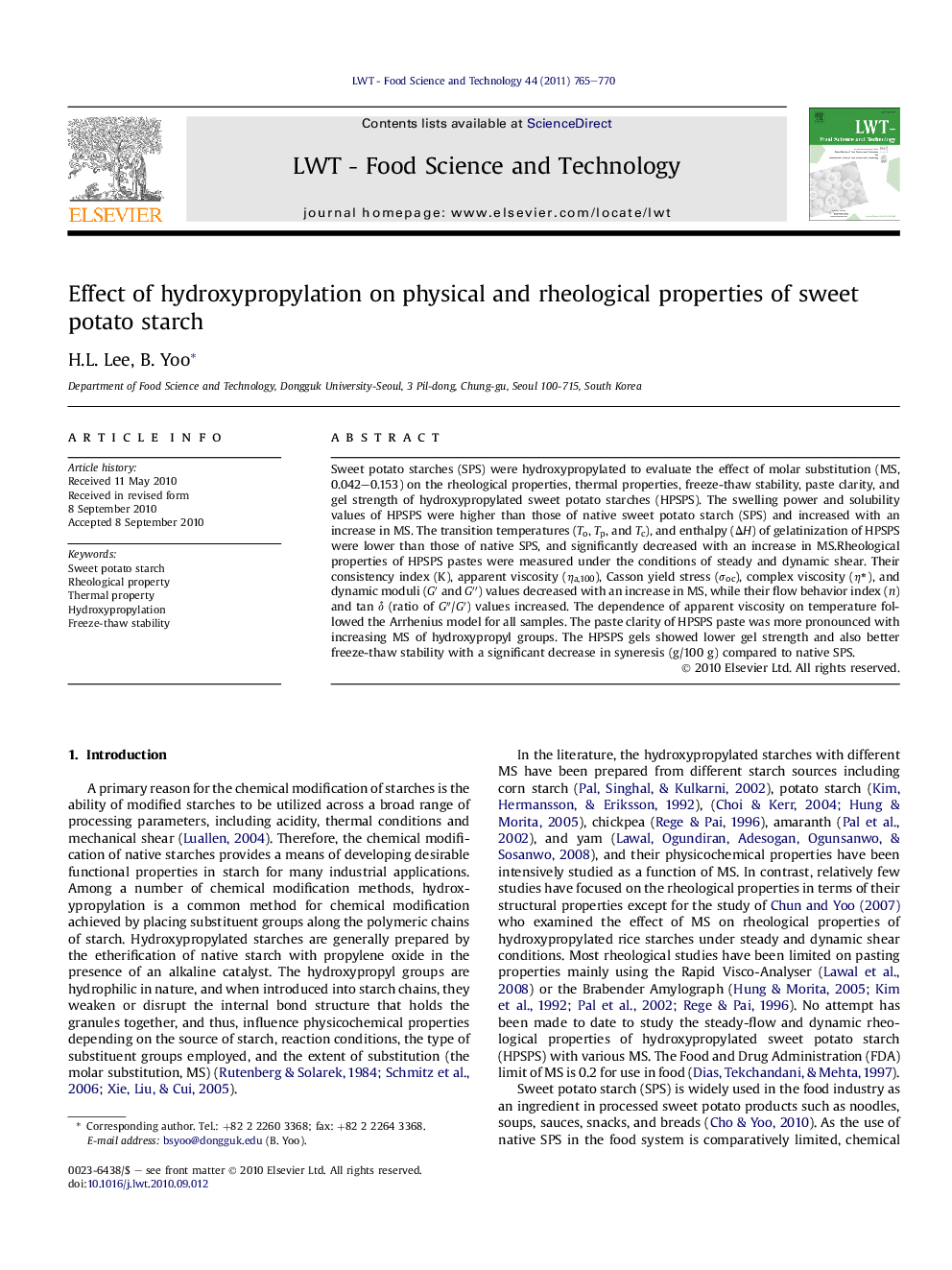| Article ID | Journal | Published Year | Pages | File Type |
|---|---|---|---|---|
| 4564090 | LWT - Food Science and Technology | 2011 | 6 Pages |
Sweet potato starches (SPS) were hydroxypropylated to evaluate the effect of molar substitution (MS, 0.042–0.153) on the rheological properties, thermal properties, freeze-thaw stability, paste clarity, and gel strength of hydroxypropylated sweet potato starches (HPSPS). The swelling power and solubility values of HPSPS were higher than those of native sweet potato starch (SPS) and increased with an increase in MS. The transition temperatures (To, Tp, and Tc), and enthalpy (ΔH) of gelatinization of HPSPS were lower than those of native SPS, and significantly decreased with an increase in MS.Rheological properties of HPSPS pastes were measured under the conditions of steady and dynamic shear. Their consistency index (K), apparent viscosity (ηa,100), Casson yield stress (σoc), complex viscosity (η*), and dynamic moduli (G′ and G″) values decreased with an increase in MS, while their flow behavior index (n) and tan δ (ratio of G″/G′) values increased. The dependence of apparent viscosity on temperature followed the Arrhenius model for all samples. The paste clarity of HPSPS paste was more pronounced with increasing MS of hydroxypropyl groups. The HPSPS gels showed lower gel strength and also better freeze-thaw stability with a significant decrease in syneresis (g/100 g) compared to native SPS.
